Episodes
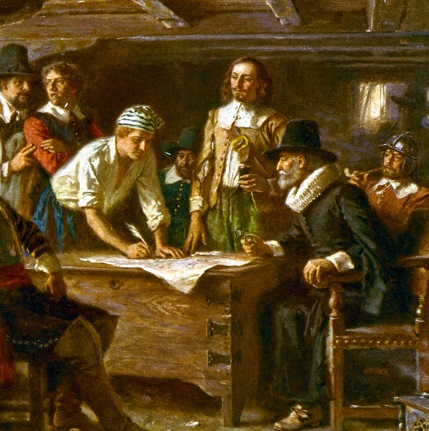
Tuesday Aug 01, 2017
The Puritans, the Exodus, and the American Experience with Dr. Virginia Arbery
Tuesday Aug 01, 2017
Tuesday Aug 01, 2017
Who are we as Americans? Dr. Virginia Arbery, Associate Professor of Humanities at Wyoming Catholic College points out that the New England Puritan self-understanding is the root of our American self-understanding. Their sense of an exodus from England with a new beginning in the New World to found “A City on a Hill,” a New Jerusalem, remains with us today. Dr. Virginia Arbery is our guest on this edition of The After Dinner Scholar.

Tuesday Jul 04, 2017
Lecture: Moses and Israel: From Exile to Freedom by Dr. Jeremy Holmes
Tuesday Jul 04, 2017
Tuesday Jul 04, 2017
Reflecting on the death of Moses, the writer of the 34th chapter of Deuteronomy said, “Since then, no prophet has risen in Israel like Moses, whom the Lord knew face to face, who did all those signs and wonders the Lord sent him to do in Egypt—to Pharaoh and to all his officials and to his whole land. For no one has ever shown the mighty power or performed the awesome deeds that Moses did in the sight of all Israel.”
At the 2017 Wyoming School of Catholic Thought, Bible scholar and Wyoming Catholic College professor Jeremy Holmes reflected on how the Exodus from Egypt to the Promised Land and the life of Moses illustrate the theme of Returning from Exile. Here is his lecture in its entirety.
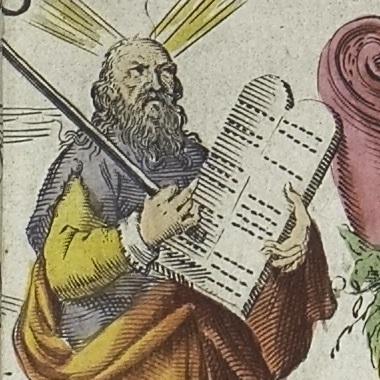
Tuesday Jul 04, 2017
Tuesday Jul 04, 2017
Throughout the Old Testament, there’s a familiar refrain: Remember. “Remember that you were slaves in Egypt and the Lord your God redeemed you from there.”
The Exodus—God’s saving work among the Israelites whereby He brought them from slavery, through the Red Sea, across the wilderness, and into the Promised Land of Canaan—is the primary and paradigmatic act of salvation in the Old Testament and the event the New Testament writers looked to in order to understand faith in Jesus.
Bible scholar and Wyoming Catholic College professor Dr. Jeremy Holmes discusses how the Exodus as critical to understanding how we as Christians return from exile.
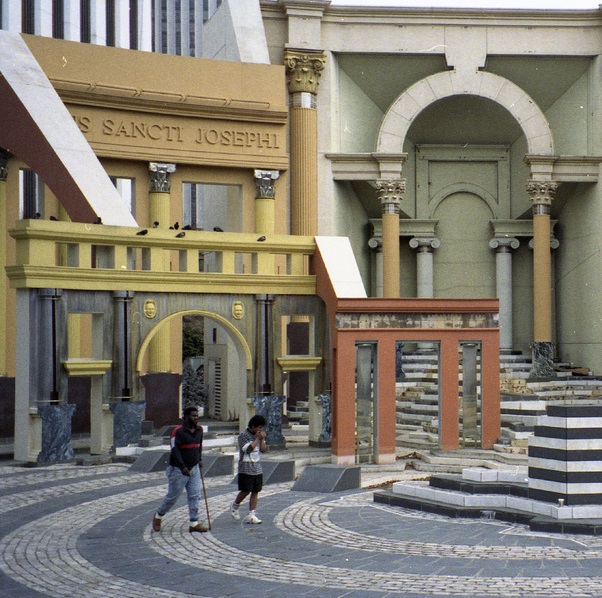
Tuesday Jun 20, 2017
Modernity, Postmodernity, and Beyond, Part 2 with Dr. Thaddeus Kozinski
Tuesday Jun 20, 2017
Tuesday Jun 20, 2017
We live in a postmodern culture. It’s something we did not choose and cannot avoid. And, as Wyoming Catholic College Academic Dean Dr. Thaddeus Kozinski argued last week, it’s not an entirely bad state of affairs since modernity was rife with problems—problems highlighted by two world wars and the tyranny of ideologies falsely branded as scientific.
This week Dr. Kozinski looks deeper into postmodernity and some of the conflicts within our current culture. We'll discover that understanding postmodernity is thus necessary to understand the world in which we live, ourselves, our children, and the prospects for the future.

Tuesday Jun 13, 2017
Modernism, Postmodernism, and Beyond, Part 1 with Dr. Thaddeus Kozinski
Tuesday Jun 13, 2017
Tuesday Jun 13, 2017
The term “postmodern” is used regularly today. Barak Obama was dubbed the first postmodern president. ISIS has been called a postmodern terrorist group. Postmodernism, we’re told, has taken over higher education and is a threat to Western civilization and to Christianity. At the same time, there are churches that cheerfully brand themselves as postmodern.
So what is Postmodernism? Is it a philosophy? A means of analysis? An aesthetic? An attitude? Is it a reaction against the rationalism, scientism, and authority of modernity? Is it an attempt to unmoor and destroy Western civilization?
To answer at least some of those questions this podcast and the one next week feature Dr. Thaddeus Kozinski who, among other things, teaches Martin Heidegger, Jacques Derrida, Michel Foucault, and other postmoderns to seniors here at Wyoming Catholic College.
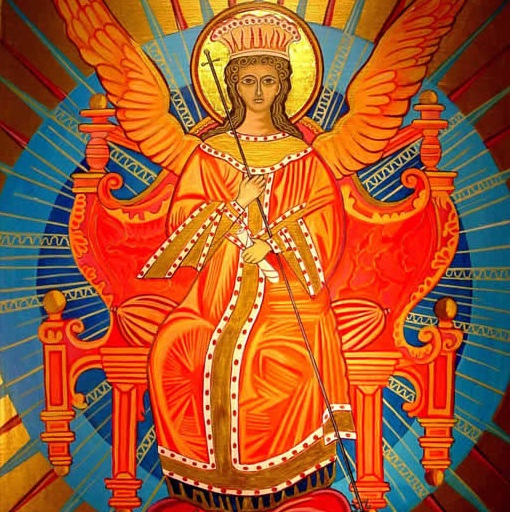
Tuesday May 23, 2017
The Book of Wisdom and the Path of Life with Dr. Kent Lasnoski
Tuesday May 23, 2017
Tuesday May 23, 2017
In St. Luke’s brief description of Jesus as a child, he emphasized that Jesus grew in wisdom. That is, Jesus not only learned the Scriptures, but went beyond learning information to learning how to live well under the good laws and just reign of God. In learning the Scriptures, Jesus would have read, studied, and memorized the sayings in the Old Testament wisdom books including the Book of Wisdom sometimes known as the Wisdom of Solomon.
Dr. Kent Lasnoski, Assistant Professor of Theology here at Wyoming Catholic College explains wisdom literature generally and the Book of Wisdom in particular.

Monday May 08, 2017
Monday May 08, 2017
You may already be aware that Wyoming Catholic College freshmen begin their four-year journey into the Liberal Arts with a twenty-one day journey into the Wyoming Wilderness. What you may not know is that the freshman expedition is an integral part of their liberal arts education. It prepares them intellectually and spiritually for their studies.
Immersed in the natural world, they gaze at the stars, they marvel at speckled trout, they grasp stony crags at the summit of mountains topping 12,000 feet, they look into the faces of wildflowers, and they shudder at the voice of the thunder. Through it all, the feeling of awe, of wonder grows and with it the desire to know.
To talk about why encountering nature is so vital in a Liberal Arts education, we are joined by Dr. Stanley Grove, Assistant Professor of Philosophy. Dr. Grove in addition to being a great outdoorsman himself spends hours in the woods and meadows around Lander teaching field science.
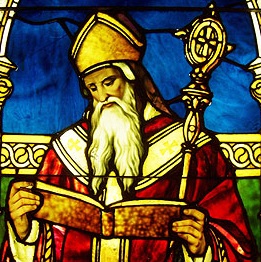
Tuesday May 02, 2017
Take Up and Read: St. Augustine's On Christian Doctrine with Dr. Kent Lasnoski
Tuesday May 02, 2017
Tuesday May 02, 2017
In On Christian Doctrine, St. Augustine of Hippo (AD 354-430) offers a guide for interpreting and expounding Scripture. “There are certain precepts for treating the Scriptures,” he wrote, “which I think may not inconveniently be transmitted to students, so that they may profit not only from reading the work of expositors, but also in their own explanations of the sacred writings to others.”
That is, he produced a practical guide with rules for interpreting the Bible and for explaining the Bible to other people.
Freshmen at Wyoming Catholic College have been reading On Christian Doctrine and their professor, Dr. Kent Lasnoski who is our guest on this podcast.
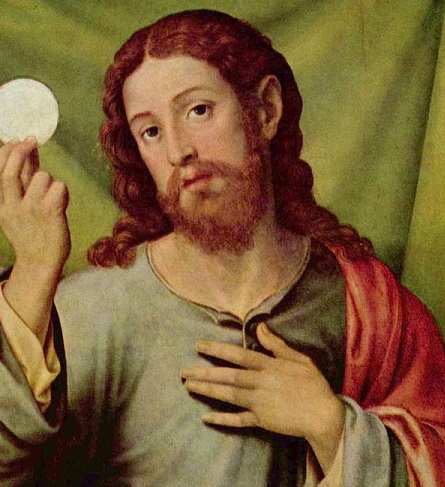
Tuesday Mar 28, 2017
Sacred Signs: On the Physical Side of Being Spiritual with Dr Kent Lasnoski
Tuesday Mar 28, 2017
Tuesday Mar 28, 2017
“The liturgy,” wrote Fr. Romano Guardini, “is not a matter of ideas, but of actual things, and of actual things as they now are, not as they were in the past.” In order to understand the liturgy, he went on, we need to “discern in the living liturgy what underlies the visible sign, to discover the soul from the body, the hidden and spiritual from the external and material.”
Guardini was one of the towering Catholic intellectuals of the twentieth century and a major influence on the thinking of Pope Benedict XVI, Pope Francis, and philosopher Josef Pieper. Yet in 1911, Guardini, for all his erudition, wrote a little book entitled Sacred Signs in which he gently and simply explained this connection between the material stuff of the Mass and the inner world of the spirit.
Dr. Kent Lasnoski, Assistant Professor of Theology at Wyoming Catholic College, received his Ph.D. from Marquette University, where he studied the theology of marriage and sexual ethics, that is, things both spiritual and physical. He has been teaching Guardini’s Sacred Signs to our freshmen and shares both his own and his students insights on the physical side of spirituality.
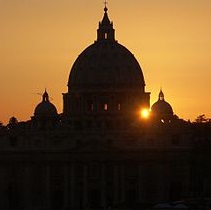
Tuesday Mar 21, 2017
The Pope, Authority, and “Religious Assent” with Dr. Jeremy Holmes
Tuesday Mar 21, 2017
Tuesday Mar 21, 2017
It’s a terribly misinformed, but common anti-Catholic trope: “Catholics,” it is said, “have to believe everything the pope says.”
Catholics do not have to believe “everything the pope says.” But, on the other hand, the Church teaches in Lumen Gentium, Vatican II’s Dogmatic Constitution on the Church, “In matters of faith and morals, the bishops speak in the name of Christ and the faithful are to accept their teaching and adhere to it with a religious assent.” So while we don’t have to believe “everything the pope says,” when he teaches us as pope, Catholics are conscience bound, to accept his teaching and adhere to it with “a religious assent.”
What does that mean on a practical level as we hear or read papal sermons, encyclicals, exhortations, and other writings? What if we sincerely disagree with him? How do we sort it out?

